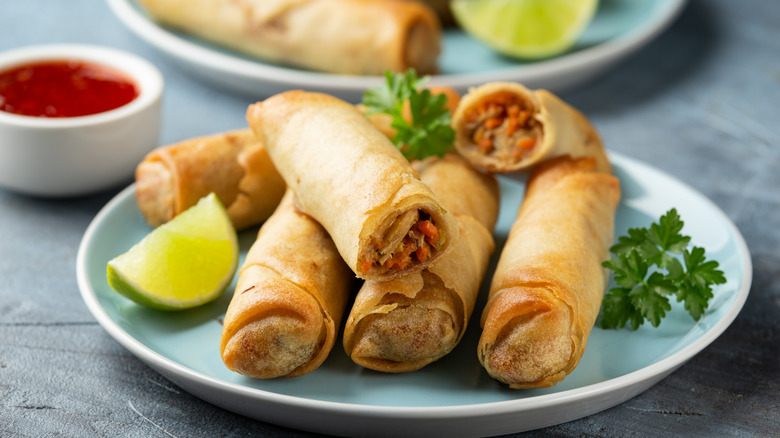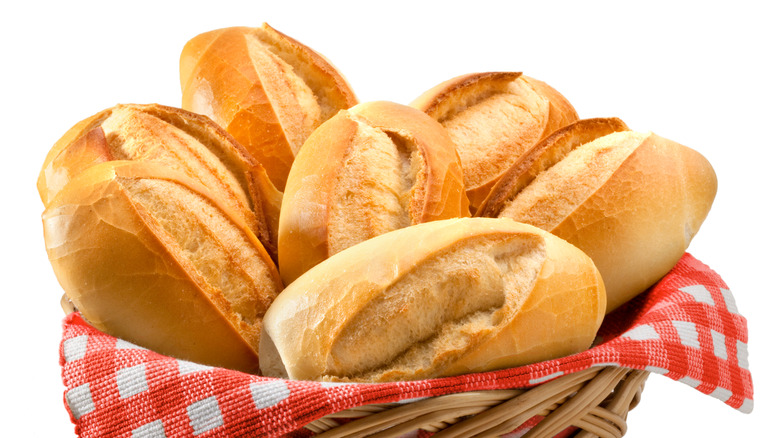Why Chinese Food In Massachusetts Comes With Dinner Rolls
When you think of American Chinese food, you probably think of egg rolls, noodles, and those square paper boxes with the metal handle. Ever since the first Chinese restaurant in the United States opened in San Francisco back in 1849 (per Insider), Americans have long enjoyed Chinese cuisine at restaurants or at home.
Of course, as with any cuisine that's been blended into American culture, it's not too similar to the food you'd find in China. (Panda Express and P.F. Chang's are a kind of Americanized knockoff.) Some, such as Bao Nation, explain that non-American Chinese food is designed around the idea of certain foods having certain meanings or symbolism, along with a focus on "balance" in the cooking process. Epicurious reports that some Chinese-born chefs stay away from the word "authentic;" the traditions and styles of even the most ancient recipes change over time. While the orange chicken you order from Panda Express may not be what you'd find in China, it's still a pretty delicious dish that has roots in Chinese cooking.
For one U.S. state, Chinese dinner doesn't always come with a fortune cookie and a plastic sleeve of chopsticks. Instead, your order of egg foo yung and stir-fry will come with a fresh dinner roll, just as you would get from an average American dinner.
Why do you get bread rolls in Massachusetts?
Admittedly, it's a bit of a strange sight to get a dinner roll alongside your takeout order. But the dinner roll is actually symbolic of Chinese culture adopting not just to American culture, but other cultures as well.
As NPR explains, when famed Chinese-American chef Joyce Chen opened her first restaurant in Massachusetts, she found herself catering to the large Italian and Irish working-class population. To better appeal to them Chen adopted some minor changes to how she served food, such as calling her dumplings "Peking ravioli" to better reach the Italians with a food they would be a bit more familiar with. Dinner rolls were also staples of Italian and Irish meals, so Chen adopted the idea of serving "chop suey sandwiches." Other elements of Massachusetts culture influencing Chinese cuisine comes in the form of the molasses industry in Boston, which promoted the use of the sticky and sweet syrup into certain dishes, including sauces and chicken.
Over time, Chen's practice of serving bread with her meals stuck, and other Chinese restaurants in Massachusetts began to adopt the practice.

